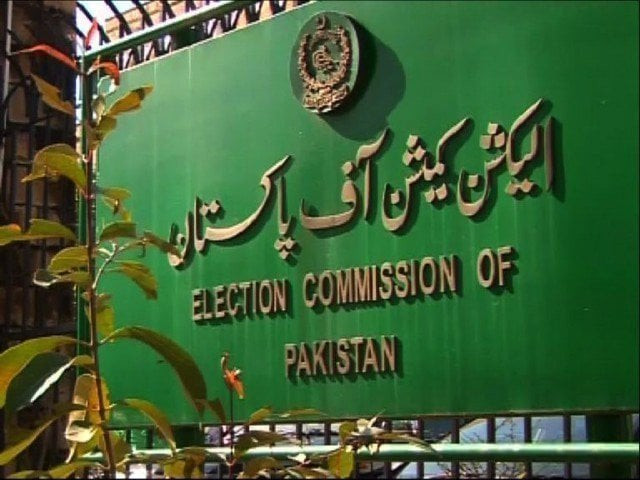ECP barred from making politicians' asset declaration public
The decision is likely to affect transparency of the electoral process

Back in 2013 there was no law compelling the ECP to disclose these details on their website, however, the body used its constitutional powers to still do so. PHOTO: EXPRESS
In 2013 general elections, the ECP had put nomination forms of all contesting candidates on its website for public scrutiny. Some politicians had expressed reservations on the move, but it was considered a step towards transparency which provided people easy access to pursue credentials of the candidates.
However, when the Elections Act, 2017 was passed in October last year, parliament inserted a specific clause in the law, ostensibly to make sure this does not happen anymore. The ECP officials claim they cannot put such information on their website anymore as the law bars them from doing so.
Over 500 candidates obtain nomination papers
“The Returning Officer shall — (a) make the nomination papers along with annexures open to inspection by the public; and (b) issue certified copies of these documents in such manner and on payment of such fee as may be prescribed,” reads clause 7 of section 60 of the Act.
This implies that anyone who wants to get access to information contents of nomination forms and details provided in annexures would have to submit written application to the returning officer and attach a receipt of the fee paid.
Prescribed fee is Rs10 per page. It means that if anyone wants to get copies of the nominations of all the candidates running in a constituency where dozens of politicians are participating in the election race, he or she will have to pay hundreds of rupees fee in addition to going through cumbersome procedures.
Interestingly, it is mentioned in 22 different clauses of the act as to what should be put on the ECP website, but it specifically mentions procedure about getting information about nominations.
A significant amount of information such as qualification of candidates, tax payment and other financial and personal details were omitted from the nomination forms which were made part of the Elections Act, 2017.
Most of this information and omitted affidavits have been restored now after the Supreme Court’s latest orders. However, law puts limits on returning officers while scrutinising credentials of the candidates.
ECP starts accepting nomination papers, June 8 set as last date for submission
Section 7 of clause 62 of the Elections Act, 2017 reads; “The Returning Officer while scrutinising nomination paper of a candidate, shall not ask any question which — (a) has no nexus with the information supplied in the nomination paper; or (b) has not arisen from the objections raised by any person or from information received by him under this section.”
The returning officers would have to confine themselves to queries about what has already been provided in the nomination papers or ask questions that have been filed by opponents of a candidate.
Soon after the Panama Papers controversy came to limelight in April 2016, the ECP stopped putting the statements of assets and liabilities of lawmakers on its website.
A group of lawmakers, mainly from the former ruling party, had a meeting with the ECP and asked the elections supervisory body to remove these details from the website, citing security and privacy reasons.
The ECP acquiesced and complied immediately. It also removed statements of assets and liabilities of members of parliament and provincial assemblies for 2013 and 2014 that were available on the website.
This deprived the media and the general public of getting free-of-cost online information about their representatives to make comparative analysis and point out possible perjuries.



















COMMENTS
Comments are moderated and generally will be posted if they are on-topic and not abusive.
For more information, please see our Comments FAQ